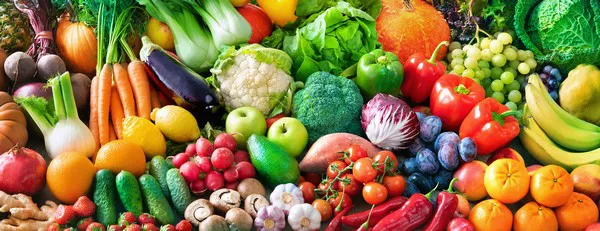Niacinamide, also known as vitamin B3, is an essential nutrient that plays a vital role in maintaining good health. It is involved in a range of bodily functions, including energy production, DNA repair, and cell communication. Niacinamide is also a popular ingredient in skincare products due to its ability to improve skin texture, reduce inflammation, and minimize the appearance of fine lines and wrinkles. In this article, we will discuss the foods that niacinamide is found in and how to incorporate them into your diet.
Foods That Are Niacinamide Found In:
Meat:
Meat is a rich source of niacinamide, particularly beef, pork, and chicken. A 3-ounce serving of cooked beef contains approximately 5.8 milligrams of niacinamide, while a 3-ounce serving of cooked pork contains approximately 3.1 milligrams. Chicken is also a good source of niacinamide, with a 3-ounce serving of cooked chicken containing approximately 2.8 milligrams.
Fish:
Fish is another good source of niacinamide, particularly tuna, salmon, and swordfish. A 3-ounce serving of cooked tuna contains approximately 11.3 milligrams of niacinamide, while a 3-ounce serving of cooked salmon contains approximately 8.6 milligrams. Swordfish is also a good source of niacinamide, with a 3-ounce serving of cooked swordfish containing approximately 7.6 milligrams.
Legumes:
Legumes, such as lentils, chickpeas, and black beans, are a good source of niacinamide. A cup of cooked lentils contains approximately 2.1 milligrams of niacinamide, while a cup of cooked chickpeas contains approximately 1.1 milligrams. Black beans are also a good source of niacinamide, with a cup of cooked black beans containing approximately 0.9 milligrams.
Vegetables:
Certain vegetables are also a good source of niacinamide, particularly mushrooms, asparagus, and sweet potatoes. A cup of cooked mushrooms contains approximately 3.6 milligrams of niacinamide, while a cup of cooked asparagus contains approximately 1.3 milligrams. Sweet potatoes are also a good source of niacinamide, with a medium-sized sweet potato containing approximately 2.3 milligrams.
Dairy products:
Dairy products, such as milk and yogurt, are a good source of niacinamide. A cup of milk contains approximately 0.7 milligrams of niacinamide, while a cup of yogurt contains approximately 0.9 milligrams.
Whole grains:
Whole grains, such as brown rice, quinoa, and barley, are a good source of niacinamide. A cup of cooked brown rice contains approximately 2.6 milligrams of niacinamide, while a cup of cooked quinoa contains approximately 1.2 milligrams. Barley is also a good source of niacinamide, with a cup of cooked barley containing approximately 1.1 milligrams.
Nuts and seeds:
Nuts and seeds, such as peanuts, sunflower seeds, and almonds, are a good source of niacinamide. A 1-ounce serving of peanuts contains approximately 2.1 milligrams of niacinamide, while a 1-ounce serving of sunflower seeds contains approximately 1.3 milligrams. Almonds are also a good source of niacinamide, with a 1-ounce serving of almonds containing approximately 0.3 milligrams.
Health Benefits of Niacinamide:
Supports Energy Production:
Niacinamide plays a vital role in the production of energy in the body. It is involved in the process of converting food into energy, which is then used by the body to carry out various functions. Without adequate levels of niacinamide, the body may experience fatigue and weakness.
Promotes Healthy Skin:
Niacinamide is a popular ingredient in skincare products due to its ability to improve skin texture, reduce inflammation, and minimize the appearance of fine lines and wrinkles. It helps to strengthen the skin barrier, which can protect the skin from environmental stressors and prevent moisture loss.
Reduces Inflammation:
Niacinamide has anti-inflammatory properties, which can help to reduce inflammation throughout the body. Chronic inflammation has been linked to a range of health problems, including heart disease, diabetes, and cancer.
Supports Brain Function:
Niacinamide is involved in the production of neurotransmitters, which are chemical messengers that transmit signals between nerve cells. Adequate levels of niacinamide are essential for maintaining optimal brain function and cognitive performance.
Regulates Cholesterol Levels:
Niacinamide has been shown to regulate cholesterol levels in the body. It can increase levels of high-density lipoprotein (HDL), which is often referred to as “good” cholesterol, while decreasing levels of low-density lipoprotein (LDL), which is often referred to as “bad” cholesterol.
How to Incorporate Niacinamide-Rich Foods into Your Diet:
Add Meat to Your Meals:
Meat is a rich source of niacinamide, and it can be easily incorporated into your meals. Try adding beef, pork, or chicken to your stir-fries, salads, and soups.
Include Fish in Your Diet:
Fish is another good source of niacinamide, and it can be easily incorporated into your diet. Try adding tuna, salmon, or swordfish to your meals.
Add Legumes to Your Meals:
Legumes are a great source of niacinamide, and they can be easily incorporated into your meals. Try adding lentils, chickpeas, or black beans to your soups, salads, and stir-fries.
Incorporate Vegetables into Your Meals:
Certain vegetables are a good source of niacinamide, and they can be easily incorporated into your meals. Try adding mushrooms, asparagus, or sweet potatoes to your meals.
Include Dairy Products in Your Diet:
Dairy products are a good source of niacinamide, and they can be easily incorporated into your diet. Try adding milk or yogurt to your smoothies, or enjoy a bowl of cereal with milk.
Choose Whole Grains:
Whole grains are a good source of niacinamide, and they can be easily incorporated into your meals. Try swapping out white rice for brown rice, or try quinoa or barley in your salads and soups.
Snack on Nuts and Seeds:
Nuts and seeds are a great source of niacinamide, and they make for a healthy snack. Try snacking on peanuts, sunflower seeds, or almonds throughout the day.
Conclusion:
In conclusion, niacinamide is an essential nutrient that plays a vital role in maintaining good health. It is involved in a range of bodily functions, including energy production, DNA repair, and cell communication. Niacinamide is found in a variety of foods, including meat, fish, legumes, vegetables, dairy products, whole grains, nuts, and seeds. By incorporating these foods into your diet, you can ensure that you are getting enough niacinamide to support your overall health and wellbeing.
[inline_related_posts title=”You Might Be Interested In” title_align=”left” style=”list” number=”6″ align=”none” ids=”4851,4814,4810″ by=”categories” orderby=”rand” order=”DESC” hide_thumb=”no” thumb_right=”no” views=”no” date=”yes” grid_columns=”2″ post_type=”” tax=””]

































